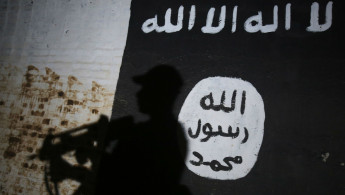UN investigators begin probe of IS crimes in Iraq
A UN team of investigators has begun work in Iraq aimed at collecting evidence on the massacres of the Yazidi minority and other atrocities committed by the Islamic State group, according to a letter released on Thursday.
UN Secretary-General Antonio Guterres told the Security Council in the letter sent August 17 that the investigators led by British human rights lawyer Karim Asad Ahmad Khan would begin work on August 20.
The council last year unanimously adopted a resolution setting up the probe to help bring perpetrators of IS crimes to justice - a cause championed by international human rights lawyer Amal Clooney.
The Lebanese-British lawyer represents Yazidi women who were taken hostage and used as sex slaves by IS as it swept into Iraq’s Sinjar region in August 2014.
The United Nations has described the massacres of the Yazidis as possible genocide and Clooney has made high-profile appearances before the world body to demand action.
Tens of thousands of Yazidis fled the August 2014 massacre in Sinjar, and UN rights investigations have documented horrific accounts of abuse suffered by women and girls.
Guterres told the council that Khan, who was appointed in February, had made a first mission to Iraq from August 6 to 14.
The investigators will gather evidence on war crimes, crimes against humanity or genocide for use in Iraqi courts that will hold trials for IS militants, according to the resolution.
IS fighters swept into Iraq in the summer of 2014, taking control of nearly a third of the country. At the height of the group's power its self-proclaimed caliphate stretched from the edges of Aleppo in Syria to just north of the Iraqi capital, Baghdad.
With its physical caliphate largely destroyed, the Islamic State movement is transforming from a "proto-state" to a covert "terrorist" network, "a process that is most advanced in Iraq" because it still controls pockets in Syria, according to a UN report.
The report, penned by UN experts, said the Islamic State group still may have up to 30,000 members roughly equally distributed between Syria and Iraq, and its global network poses a rising threat.
It said that despite the near-defeat of IS in Iraq and most of Syria, it is likely that a reduced "covert version" of the militant group's "core" will survive in both countries, with significant affiliated supporters in Afghanistan, Libya, Southeast Asia and West Africa.
The estimate of between 20,000 and 30,000 members includes "a significant component of the many thousands of active foreign terrorist fighters," it said.
While many IS fighters, planners and commanders have been killed in fighting, and many other fighters and supporters have left the immediate conflict zone, the experts said many still remain in the two countries — some engaged militarily "and others hiding out in sympathetic communities and urban areas.”
The experts said the discipline imposed by IS remains intact and IS leader Abu Bakr al-Baghdadi "remains in authority" despite reports that he was injured.
"It is just more delegated than before, by necessity, to the wider network outside the conflict zone," the experts said.
The flow of foreign fighters to IS in Syria and Iraq has come to a halt, they said, but "the reverse flow, although slower than expected, remains a serious challenge."
Follow us on Twitter: @The_NewArab





 Follow the Middle East's top stories in English at The New Arab on Google News
Follow the Middle East's top stories in English at The New Arab on Google News
![Israeli forces ordered bombed Gaza's Jabalia, ordering residents to leave [Getty]](/sites/default/files/styles/image_330x185/public/2176418030.jpeg?h=a5f2f23a&itok=_YGZaP1z)

